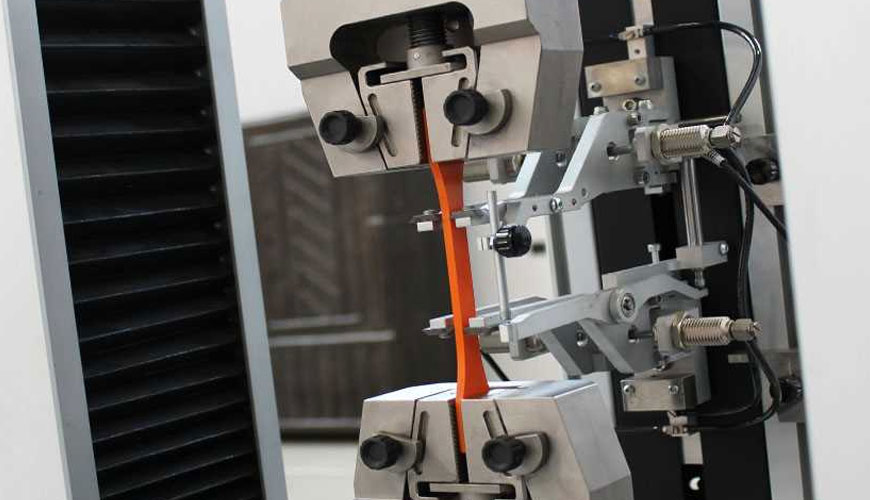

EUROLAB, with its state-of-the-art accredited laboratories and expert team, provides precise and fast testing services within the scope of ASTM D638 testing. This test method covers the determination of the tensile properties of unreinforced and reinforced plastics in the form of standard dumbbell-shaped test specimens when tested under defined conditions of pretreatment, temperature, humidity, and test machine speed.

In the ASTM D638 tensile test, the basic mechanical properties of the molding material are determined. These characteristic values are mostly used for comparison purposes.
The characteristic values are:
The ASTM D638 test method is designed to determine the tensile properties of plastic materials. And it can be used to test materials of any thickness up to 14 mm (0,55 inch).
However, for thin sheet samples, including films smaller than 1.0 mm (0.04 inch), it is preferred to use ASTM Test Methods D882. All materials with a thickness greater than 14 mm [0.55in.] must be reduced by machining for this method to be applicable.
In the standard tensile test, results are based on a defined sample tensile velocity on the sample. However, the loads on a component or structure in actual service can be over a very wide range of deformation rates.
According to ASTM D-638 tensile testing procedure, samples are placed at a specified holding distance from the grips of the universal tester and pulled until they fail. The test rate for ASTM D 638 is determined by the material specification. An extensometer is used to determine the elongation and tensile modulus.
This standard does not purport to address all, if any, safety concerns associated with its use. It is the responsibility of the user of this standard to establish appropriate safety and health practices and to determine the applicability of regulatory restrictions prior to use.
EUROLAB assists manufacturers with ASTM D638 test compliance. Our test experts, with their professional working mission and principles, provide you, our manufacturers and suppliers, the best service and controlled testing process in our laboratories. Thanks to these services, businesses receive more effective, high-performance and quality testing services and provide safe, fast and uninterrupted service to their customers.
To get an appointment, to get more detailed information or to request an evaluation, you can ask us to fill in our form and reach you.